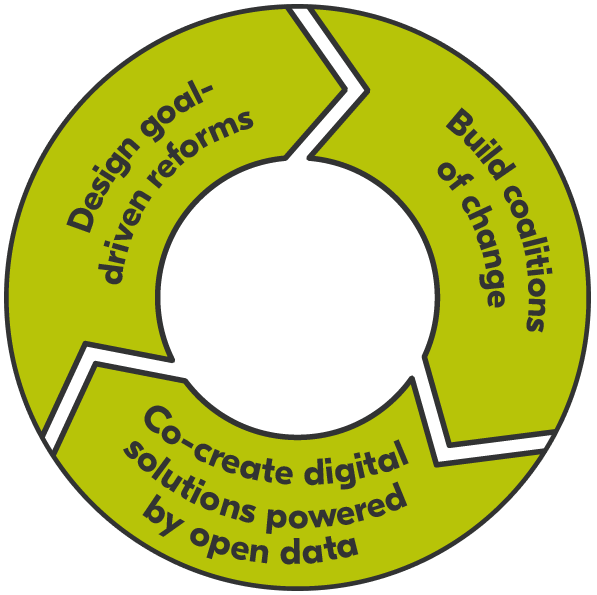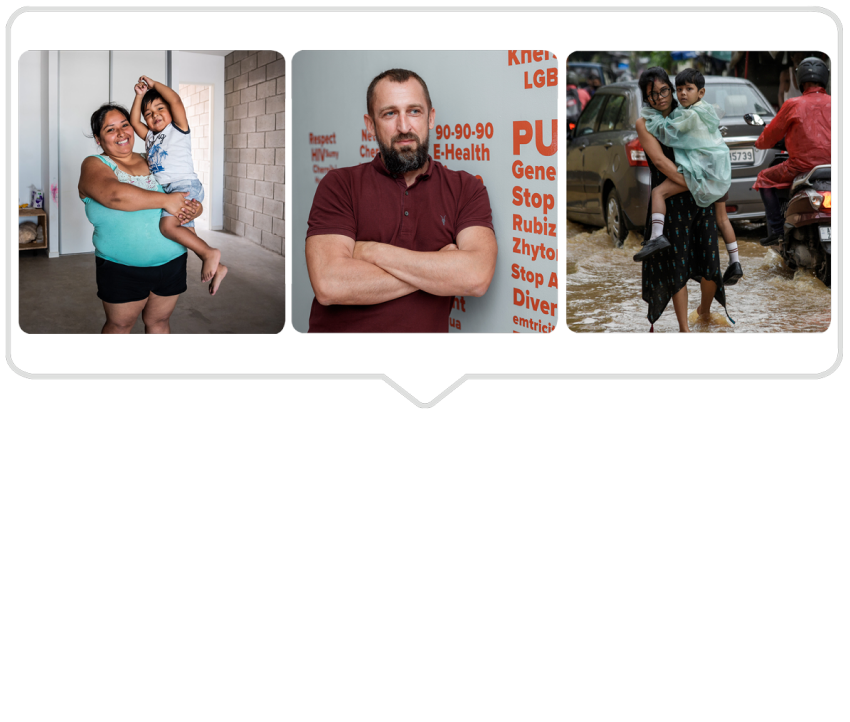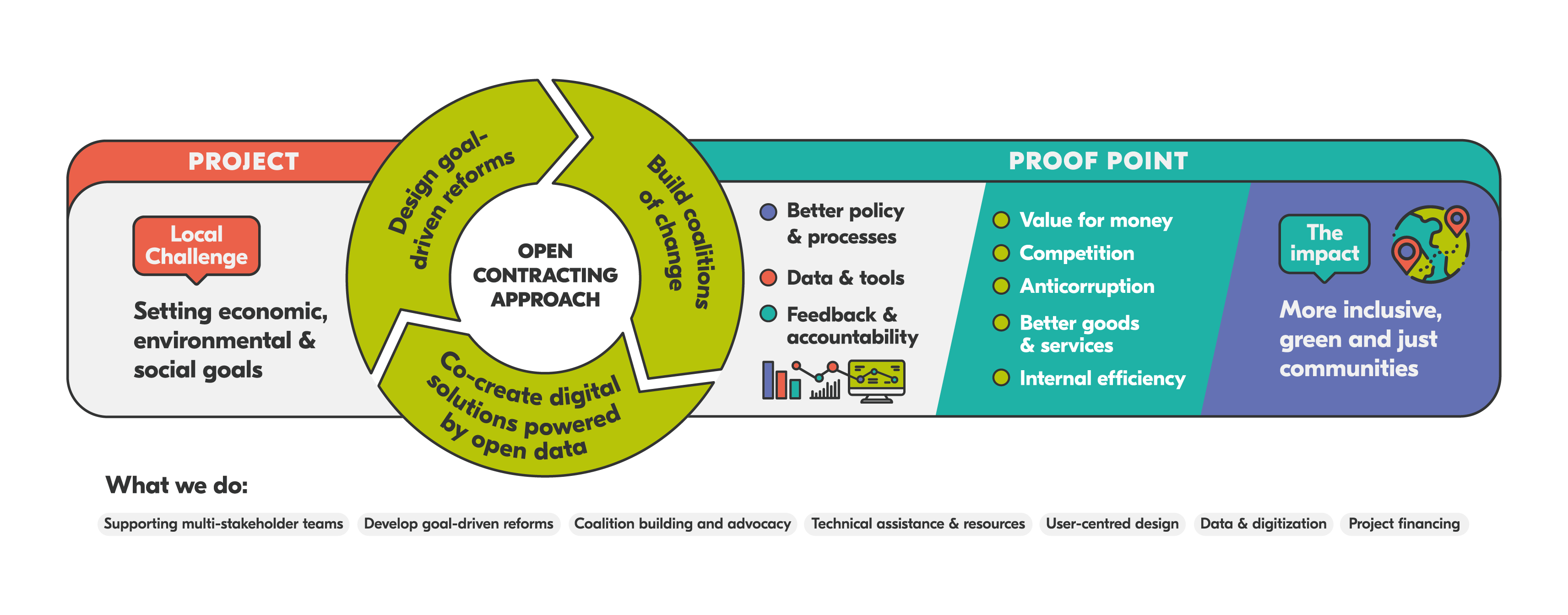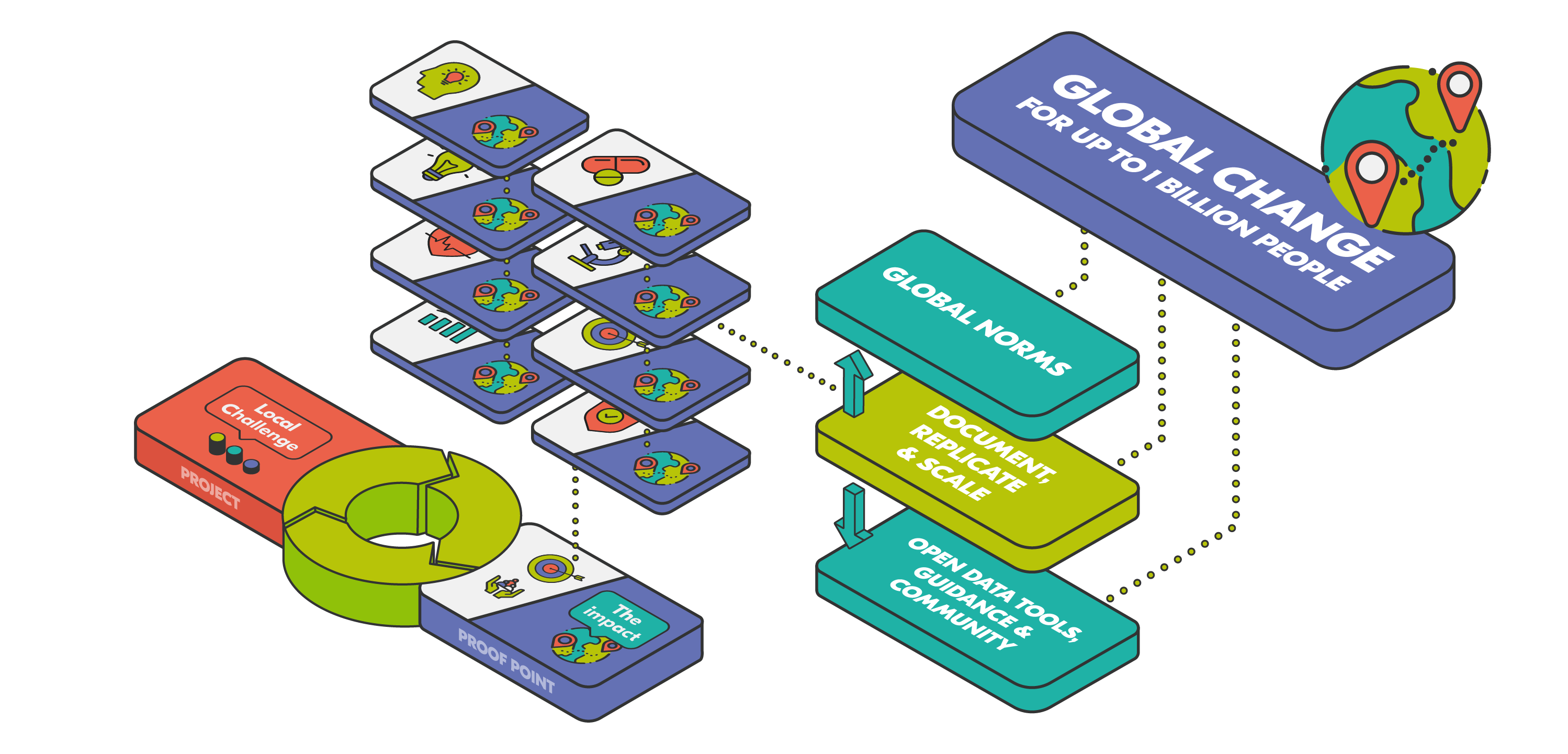BETTER PUBLIC PROCUREMENT
FOR PEOPLE AND PLANET
STRATEGY
2024-2030

Our pathways to scale
Our ambitious 2030 goal requires us to scale our work in an unprecedented way, both wide (more places) and deep (more impact where we work).
Co-creating digital procurement solutions
Current procurement tech serves bureaucracy, not people, so we will work with partners to build much better e-procurement and other digital solutions. Solutions that are user-friendly and that use data to measure and improve outcomes from procurement, such as deploying red flag automated risk indicators or that help engage the marketplace and smaller vendors.
Deepening our regional communities
Open contracting strategies, tools, and lessons travel best around shared languages and shared priority topics. We really saw the benefits of regional teams to support reforms during the pandemic, so we will continue to invest heavily in this approach, as well as supporting local civil society partners to work alongside us and more regional learning opportunities to bring us all together.
Building partnerships with international organizations
We have made good progress on shaping global norms at the G7, G20, the OECD and the UN under our previous strategy, but we still see an implementation gap around delivering on commitments. We will now more explicitly focus our international advocacy efforts on embedding and supporting open contracting interventions in multilateral institutions that support digital transformation and good governance in procurement, like the World Bank, UN and regional development banks.
Shaping global norms and practices
Procurement has to be both digital and sustainable to better serve people and protect the planet. We feel it is vital to actively shape emerging practices in both of these critical areas as support is currently heavily skewed to detailed legal analysis or specific off-the-shelf technical fixes. We can help change that with more practical support, tools and inspiration, bridging the gap between knowledge and practice with user-friendly ‘how to’ guides and by sharing the real stories of reforms and their challenges.
How we work
Supporting local changemakers is at the heart of our work and our theory of change. Here is how we bring our assistance together for our partners:
We help our partners identify and collaborate with stakeholders to articulate their goals and develop implementation plans – from strengthening democratic institutions to expanding economic inclusion or strengthening sustainability and climate resilience.

We help our partners build coalitions of change and make the case for open contracting. We communicate their story to build buy-in and show that change is possible.

We support partners to improve data collection, validation, publication and usability to achieve their objectives. This work can include supporting implementation of the Open Contracting Data Standard. We support data use through capacity building and developing or adopting software solutions, such as business intelligence tools, AI, dashboards to monitor red flags, or tools using non-procurement data to inform procurement decision-making.
Our theory of change
Here is how we plan to reach our impact targets by 2030.
We plan to support around 100 compelling projects on the ground. We will work with government and civil society partners on promising, locally-owned reforms that bring together multi-stakeholder teams to achieve goals around strengthening democratic institutions, social inclusion, or environmental sustainability and resilience. With much hard work and adequate resources and incentives for change, we expect that many of these projects will improve outcomes from procurement, allowing us to work with partners to document progress and improved outcomes: a proof point that change is possible.

Every proof point can inspire other reforms and build our evidence for global advocacy on what works. As well as encouraging other local reforms, we can use these insights and evidence at the international level to decisively shift global norms around procurement reform. We will also invest in building, supporting, and documenting open source digital tools and methodologies to help future reformers go further, faster.

2019-2023
Our 2019-2023 strategy impact in numbers
0
Net Promoter Score for OCP
0
Open contracting data publishers
0
Systemic impact from open contracting reforms
0
High level global norms

0
projects, programs and organizations received non-OCP funding for open contracting work
0
Local media mentions of open contracting
0
Publishers improving the quality of their open contracting data.
0
Impact stories with an inclusion and sustainability focus
0
Actors using OCDS data
0
times our resources were accessed


